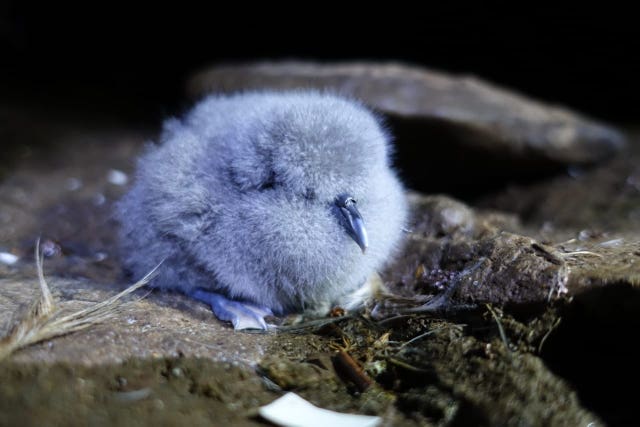Endangered seabird’s young being eaten by invasive mice on remote island – RSPB
All but one MacGillivray’s prion chick at a monitoring site on Gough Island have died, but a project to eradicate the mice is taking place this year.

An endangered seabird is inching towards extinction on a remote UK overseas territory because invasive mice are killing its young, experts warn.
All but one of this year’s MacGillivray’s prion chicks at a monitoring site on Gough Island in the South Atlantic have died, with only one chick surviving from 50 nests and unlikely to live long enough to fledge, the RSPB said.
The wildlife charity, which has been monitoring a group of the burrow-nesting nocturnal birds in a cave since 2014, said invasive mice were the cause of the problem, eating many of the newly hatched chicks.
They even attack the parents who are forced to desert their eggs to get away from the rodents, who were inadvertently introduced onto the island in the 19th century and have since adapted to feed off seabirds.
Action to eradicate the mice from the island had been due to take place in 2020 but was delayed until this year because of the pandemic.
Conservationists warn without such a move, MacGillivray’s prion risks going extinct on Gough Island, where most of the global population of the species is found.

The situation is worsening, with just one chick fledging from the site since 2017.
It is thought invasive mice are largely responsible for the collapse of MacGillivray’s prion populations from around 3.5 million pairs globally in 1956 to 175,000 pairs in 2020, the vast majority of whom are on Gough Island.
Research published in the journal Animal Conservation predicts the birds will continue to decline by 9% each year if mice remain on the island, with a 31% chance of the species going extinct on Gough by 2057.
But if the rodents are eradicated, it is thought the population is likely to stabilise and slowly recover.
The RSPB, in partnership with Tristan da Cunha Overseas Territory which includes Gough Island, the UK Government and other organisations, is undertaking the project to protect the species and other seabirds.
The scheme will see bait dropped from helicopters, which have been shipped out to the remote territory, to eradicate the mice across the island.
“MacGillivray’s prions only lay one egg a year, so for that one egg to never make it to adulthood, year after year, is just heart-wrenching.
“Even the precious chick which is still alive still has seven weeks to go before it can fly, so there’s a very small chance it will make it.
“But, with the restoration project so close at hand, I have every hope that we will soon be able to make this island a global haven for seabirds once more, helping to revive our world.”





